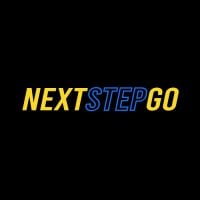Seashore
Drug Rehab Center in Detroit Lakes, Minnesota
Seashore is a state-licensed and accredited addiction treatment facility located in Detroit Lakes, MN offering comprehensive care for individuals dealing with mental health issues, drug addiction, substance abuse and alcoholism through both residential and outpatient programs that include medical detox support, individual therapy sessions, and financial assistance options.
About Seashore in Minnesota
Seashore in Detroit Lakes, Minnesota, stands out as a Certified Corporate Adult Foster Care home, offering a unique blend of supportive services for individuals needing 24-hour supervision. Its affiliation with Thrive Behavioral Network and a variety of care levels tailored to addiction recovery make it a distinctive choice for those seeking sobriety.
- Certified and Accredited: Seashore meets rigorous standards as a State Licensed facility, ensuring high-quality care.
- Comprehensive Care: Offers residential, inpatient, and outpatient programs to suit different recovery needs.
- Supportive Environment: Provides 24/7 supervision and support, fostering personal growth and independence.
Seashore's accreditation by a State License highlights its commitment to excellence in addiction treatment and mental health services. The facility's partnership with Thrive Behavioral Network enhances its capability to deliver superior care and support.
Seashore addresses a range of addictions and mental health issues with a focus on drug addiction, substance abuse, and alcoholism. Treatment methods include residential, inpatient, and outpatient care, offering personalized plans for recovery.
Genders
Ages
Modality
Additional
Accreditations
State License
Conditions and Issues Treated
Substance abuse creates problems that affect people in Detroit Lakes, MN on many levels. First, substance abuse affects the individual who is abusing drugs or alcohol. This can result in health problems, including heart damage and overdose. Substance abuse also affects the user’s family, friends, co-workers, classmates, or peers. These people feel frustrated because they do not know how to help their loved ones struggling with addiction. At the same time, the addict cannot control his behavior. Lastly, friends and family members of addicts are affected financially by substance abuse.
The good news is that effective treatments can help prevent substance abuse or treat its effects on the user. These treatments, which include behavioral therapy and counseling sessions, target the underlying causes of substance abuse, helping users achieve sobriety so they can regain control over their lives. They also teach users to cope with stress in ways other than using drugs or alcohol.
Levels of Care Offered
This center offers a variety of custom treatment tailored to individual recovery. Currently available are Inpatient, Outpatient, Residential, with additional therapies available as listed below.
Going to an inpatient rehab facility means living there while all aspects of addiction or co-occurring disorder get addressed. The treatment involves medical supervision, therapy, and future planning.
This type of rehabilitation provides a drug-free environment for people who struggle with chronic/long-term addiction without having access to drugs outside the center (or their own home). It takes away any distractions because they live there 24 hours per day. If someone is trying to break out old habits, which could lead them back into substance abuse, things like jobs or school can be put on hold until after they complete their stay to focus solely on recovery.
Outpatient programs at Seashore, the Detroit Lakes resident can live with their family while continuing with their job or studies. Treatment includes educating the patient on drug abuse, medications, and counseling sessions at the individual or group level. Outpatient treatment plans cover diagnosis, detoxification, management, and counseling. They are a popular option for those who have graduated from inpatient facilities.
Residential treatment programs are those that offer housing and meals in addition to substance abuse treatment. Rehab facilities that offer residential treatment allow patients to focus solely on recovery, in an environment totally separate from their lives. Some rehab centers specialize in short-term residential treatment (a few days to a week or two), while others solely provide treatment on a long-term basis (several weeks to months). Some offer both, and tailor treatment to the patient’s individual requirements.
Therapies & Programs
Individual therapy is a form of counseling where you meet with a trained professional one-on-one. Meeting with a therapist in this setting allows for a personal and trusting relationship to be built. This allows the patient to open up about sensitive or private issues they may not feel comfortable discussing in a group. Individual therapy helps identify the root causes of your addiction, which can help prevent relapse.
Family therapy is often done alongside drug treatment to help addicts stay sober. The goal of family therapy for drug addiction is to create an environment where communication can happen without judgment, hostility, or blame. The therapist will sit with the family so they can learn how to communicate differently and provide new tools for dealing with emotions so that people don’t want to drink or do drugs. It’s important for families to focus on relapse prevention plans during treatment so that if the addict feels like they want to use again, they’ll know what steps they need to take together to prevent it from happening again in the future.
Group therapy sessions are another common addiction recovery service. These group sessions typically involve six to 12 addicts who meet regularly with a trained professional for support and guidance.
During these sessions, the group shares their experiences with one another and provides feedback that can help each member avoid relapse or overcome specific obstacles they are facing in their recovery process. With this type of support and guidance, addicts can feel like they are part of a community that understands their struggles and will help them get through the hard times.
It’s not as simple as quitting drinking or using drugs and expecting the hard part to be over. Many addicts in recovery have discovered that they need to improve skills such as time management, organization, communication, socialization, and self-esteem. Learning certain life skills can help those who are struggling with addiction.
Medical nutrition therapy for addiction helps patients at Seashore avoid “trigger” foods. Someone who craves alcohol may be sugar addicted. Eating a balanced diet with adequate protein, vegetables, and fruit can help reduce drinking urges.
MNT is a type of addiction treatment that teaches patients about healthy eating habits while counseling them. These sessions include meal planning, cooking demonstrations, shopping tips, grocery store tours, and food education.
Nicotine replacement therapy is a drug treatment that allows people to get the effects of nicotine without chewing or smoking. The therapy is often done with a patch, and doses of nicotine are reduced until nicotine is no longer needed. NRT helps smokers get nicotine into their system without resorting to smoking, and it has been shown to be an effective way to help people quit smoking. Coupling NRT with counseling and other means of support gives long-term smokers a better chance of removing their unhealthy habit.
Patient Experience
Experiential Therapy at Seashore
Drug addiction causes the formation of abnormal connections between neurons in the brain to form due to repeated exposure to drugs. These connections are responsible for addictive behaviors to drugs. Experiential therapy is done with patients individually and is different from traditional talk therapy. This therapy can help people revisit past traumas, heal, and move on in life in a more authentic way.
Experiential therapy uses activities to recreate experiences that may have caused trauma or negative emotions. These activities include role-playing, arts and crafts, animal care, music, or rock climbing. The individual will gradually experience calmness and love and change their perception positively through this therapy. Other than drug addiction, experiential therapy can be helpful for behavioral or eating disorders.
Fitness Therapy
A fitness therapist may suggest a variety of workouts to help you improve your strength, endurance, speed, and agility. Whether recovering from an injury or illness, getting back into shape after a long layoff, or looking for ways to increase stamina, the plan is often tailored to a specific individual’s needs. Training can take place in a gym or at home.
- Encouraging healthy eating and exercise habits to really get the body back into good working order
- Providing a distraction from cravings and underlying psychological issues that could lead to relapse
- Gaining a sense of accomplishment from completing physical challenges that further personal development
- Improving cardiovascular health and circulatory system functioning and increased energy levels to help the body stay active and enhance mood
Payment Options Accepted
For specific insurance or payment methods please contact us.
Is your insurance accepted?
Ask an expert, call (888) 674-0062
Thrive Behavioral Network Associated Centers
Discover treatment facilities under the same provider.
- Nova House Intensive Residential Treatment Services in New Ulm, MN
- Austin Manor in Austin, MN
- Gull Harbour in Moorhead, MN
- Willow Haven Intensive Residential in Lake Elmo, MN
- Milestones in Alexandria, MN
Learn More About Thrive Behavioral Network Centers
Additional Details
Specifics, location, and helpful extra information.
Detroit Lakes, Minnesota 56501 Phone Number(218) 847-3363 Meta DetailsUpdated April 15, 2024
Staff Verified
Seashore Patient Reviews
There are no reviews yet. Be the first one to write one.
Detroit Lakes, Minnesota Addiction Information
Minnesota is fighting an opioid epidemic that is leaving hundreds of its residents dead each year. Both prescription opioids and illicit opioids are widely abused in the Land of 10,000 Lakes. Heroin continues to be one of the most commonly abused drugs in the state, if not the most common illicit drug. Over 10% of all treatment admissions in Minnesota list heroin as their drug of choice.
In Detroit Lakes, Minnesota, the drug addiction problem is not as bad as in other parts of the country, but it is still a problem. According to the National Institute on Drug Abuse, about 9.4% of people in Detroit Lakes, Minnesota, abuse drugs. Finding the right drug rehab center for you or your loved one is important, as not all centers will be the right fit.
Treatment in Nearby Cities
- Maple Grove, MN (165.5 mi.)
- Dodge Center, MN (240.3 mi.)
- Glenwood, MN (82.7 mi.)
- Zimmerman, MN (142.8 mi.)
- Cloquet, MN (159.5 mi.)
Centers near Seashore
The facility name, logo and brand are the property and registered trademarks of Seashore, and are being used for identification and informational purposes only. Use of these names, logos and brands shall not imply endorsement. RehabNow.org is not affiliated with or sponsored by Seashore.








